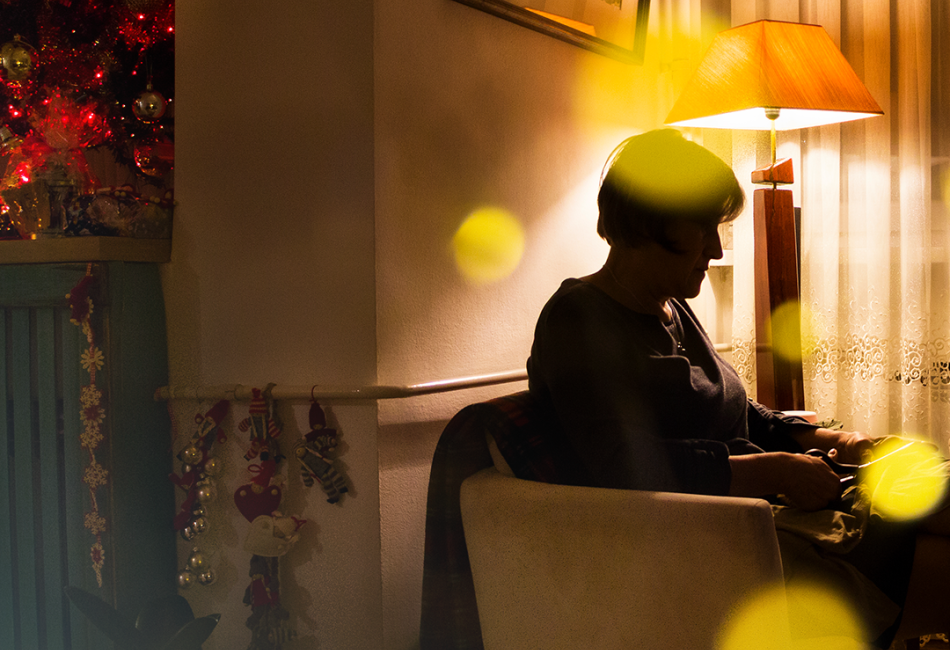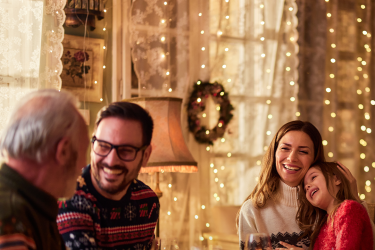Grief is a journey many of us embark on, often without warning, and the holiday season can amplify these emotions unexpectedly. Join us as we engage with Ashley Butt and Brynn Davis, who help us unravel the complexities of grief. Together, we explore how grief is not limited to the loss of a loved one but can stem from the end of relationships or dashed dreams. We promise you'll walk away with a deeper understanding of how to recognize and name your grief, which is the first step toward healing. With practical strategies, we learn to navigate grief triggers that often surface during festive times, embracing the idea that creating new traditions can foster resilience and self-discovery.
Our conversation also extends into the physical and emotional impacts of grief, as we discuss the rollercoaster of sadness, anger, and confusion that can disrupt daily life. Dr. Sipsy shares valuable insights into the denial and emotional shutdowns that often accompany significant loss. This dialogue is enriched by tips on setting boundaries, asking for help, and honoring loved ones through meaningful acts, reminding us all that experiencing joy is not only possible but essential. As we encourage open conversations about mental health, we underscore the importance of taking each day as it comes and prioritizing self-care, ensuring this holiday season is one of healing and growth.
Speaker 1:
Hi and welcome to, and so Much More. I am your host, Cami Smith, and I am here with Ashley Butt and Brynn Davis and we are continuing our series on talking about our psychiatry and behavioral health service line throughout the holidays and just specific things that just really practically we walk through all year long, but during the holiday season it just intersects in a different way and maybe giving you all some practical ways to um to handle some of these things in um, just in a safe and in a respectful way for yourself and for those in your life. So the first one we talked about mental health and depression with Dr Sipsy and um, and he was wonderful and he gave us so much to talk on. He actually talked a little bit about grief, which is really what we're going to be touching on today. Um, which is really what we're going to be touching on today, um, and what we want to talk about with um grief is how, um, during the holidays it's not like anything in our else, just not anything else in our life just magically goes away Um, and so how do we continue this healing process um, while, you know, engaging in the celebration and the joy and the things that come with the holiday season, um, and so those of you who are following along in the series, we hope you were able to check out that first one, um, on depression.
Speaker 1:
And then we talked about neurodivergence with some of our autism and development specialists. It's going to be wonderful, and today we are going to jump in and discuss grief, and so, um, as our health system experts in the room, I'm going to jump in and discuss grief, and so, as our health system experts in the room, I'm going to rely on you all heavily and thank you for coming and sharing just your wisdom and your perspective on this topic. But before we jump in, I want you guys to share a little bit about yourself and your role at Centra.
Speaker 2:
Sure, I'm Brynn Davis. I'm a licensed professional counselor. I work on the adult and geriatric inpatient psychiatric units at Virginia Baptist and I supervise lead a team of other therapists.
Speaker 3:
I'm Ashley Butt. I'm the director of social work at Virginia Baptist Hospital, working across the three inpatient units, and I work with the same team as Bryn, as well as with our child and adolescent team, and I love the work that we do there. We get to make a difference in the lives of people when they're in a place of an acute need and we get to participate, briefly, on their path to wellness.
Speaker 1:
So you all have patients really of all ages, is that correct? Yes, okay, so I feel like that can really open this conversation up a lot, because grief obviously does not discriminate. There are so many different types of grief and and people of all ages, and I think that, um, children can sometimes be almost skipped over when you think about grief, because they're so young and while they experience sadness. I think that it hasn't always been something that's necessarily, in my experience, been recognizing young children, and but it's, it's very real, no matter what age you are. Um and so, for those of us who, um, you know, are maybe new to this topic, haven't experienced this intensity in our own lives, how would you define grief? Like? What is grief?
Speaker 2:
I would say it's a normal and natural response to the loss of any significant attachment in your life. We think of it often associated with what you experience after the death of someone you lose, but it can also be experiencing the end of a relationship, experiencing as children, experiencing the divorce of parents, the loss of a pet or the loss of a job, and it's pretty, it's universal. At some point, everyone will experience some type of grief.
Speaker 3:
And on that note even the loss of an older parent due to dementia or losses that go with medical conditions.
Speaker 1:
So grief is an experience that people have to go through when they experience a loss. Yeah, and I think about, because those are the types of things that I would probably closely identify grief with. But, um, I know in my own life and in those who that those are close to me. Sometimes you will even need to grieve, um, like a diagnosis or or an expectation or a dream you have for yourself that is suddenly very obviously not going to happen, or um, I think that in our minds, we so closely associate with, like dreams and ideas and goals, um, that allowing yourself to feel and experience grief for something that doesn't feel so tangible, um is so important and and um, and then also, you know, acknowledging it, like naming it, um, because, yeah, there are allowances that we make for those, like you said, who lose a person in their life, but, as you guys alluded to, like, it just expands to so much more Um, and so, as people come in, like, well, first of all, what does that look like?
Speaker 1:
Cause I mean, it's not like I sit home and I think I'm experiencing grief, I should probably go get help. You know, a lot of times you're sad, you're seeing, uh, you're seeing this impact other areas of your life which may lead you to reach out. But what does that first step often look like for people?
Speaker 3:
Well, I, you know, I think when, when you begin, when you know that you've gone through a loss, knowing that that grief process can have an effect psychologically but also physically, um, that it can impact you, um, in your, in your job, in your relationships, in your celebrations, that when a person's grieving, they carry that with them into all of their day-to-day experiences.
Speaker 3:
So when a person is able to identify I've experienced a major loss and now I'm struggling with physical symptoms, nausea, body pain, the physical experience of grief or feeling the emotions like a loss of interest, an intense sadness or anger or confusion, but like recognizing I'm going through something and there's a clear trigger I lost um a hope, a dream, a loved one, um something of value, yeah, yeah. So I think that that's the first part of of that piece. I think is recognizing it, um, and then being self-compassionate and knowing that there are stages or phases of grief.
Speaker 1:
Yeah, so what are those stages?
Speaker 2:
So there are five different stages. They're not linear or you have to go through one to experience the next, but you do experience each of them at some point. When grieving Denial you know denial Trying to understand or grasp that this loss happened, there's anger, bargaining, sadness and acceptance, realizing that this is real, this has happened.
Speaker 1:
Yeah, what would bargaining look like? That's so interesting.
Speaker 3:
Trying to make deals of thoughts. Well, if I had done this or if I did this, would that?
Speaker 1:
change. I see You're almost wrestling with your own mind in that instance. Oh goodness, it can be so encompassing. You know, and and I, I'm, I'm thankful that you talked about how, like this is not a linear process, um, cause I think so often when grief is portrayed or depression is portrayed in um, like a television show or or a movie or something, they really do put it in such a like a checkbox way where you're thinking like, oh well, what's the next step? What's my next stage? Um, but you know, like life is so unpredictable, you know, things often won't happen that way.
Speaker 3:
Right, absolutely. And with grief it tends to come in waves and it's experienced differently in adults than it is in children, oftentimes, um. But so as you're going through the process, it's important to know that grief may never go fully away, but you may learn how to cope with it and continue to live your life. You may even become to be able to celebrate the life or the experiences you've had as you work through that grief process. So when you get to that place of acceptance, that doesn't mean you stop remembering or stop thinking or stop feeling.
Speaker 3:
It just means that you're able to really start living again, and the intensity of grief, usually right after the loss, is very, very high. But as you work through that process, those waves tend to come less frequently and with less intensity. Yeah, patient with yourself, knowing that this experience is normal and giving yourself space to go through it, rather than trying to reject or deny it, because when we do that, sometimes it can make it last longer.
Speaker 1:
Yeah, yeah, so in your experience because you said you know, sometimes it doesn't ever fully just go away. I think when we talk about grief or or really anything that impacts, you know our emotions, our mind, our person um, you, you almost feel like you know, you experience it, you're going through it and then you move on, but for something that remains a part of your life, for some cases just forever, um, what can that look like? And what can that look like in a healthy way? Um, cause, I think I will say, I think from my perspective, you know, grief is it's hard, it's sticky, it can be ugly, it can be beautiful, like it's just it's all over the place and and to think about having to like hold that your whole life, that's so overwhelming. And so what can that look like in a healthy way for somebody who is experiencing this right now? And they're like what do you mean? I have to do this my whole life? Um, what can that look like long-term in a good way?
Speaker 2:
So grief is very personal, um, everyone can experience it differently. I think Ashley mentioned and said it very well just taking care of yourself and recognizing that this is what I'm experiencing and things will get better. There may be times where that wave comes, such as at holidays. There are times where the memory of that person or the loss comes up more frequently than others. When it comes to managing those feelings or experiences of grief around the holidays, it can be helpful to make a plan to help reduce your anxiety. Yeah, holidays are one of those kind of grief triggers where it can bring on a stronger wave of grief. It's a time of celebration, it's a time where people are getting together, and so while that's happening, you're also experiencing missing that person and sometimes wanting to be alone, and so how do you get through those times in a way that you're taking care of yourself, I think, recognizing what is going to be?
Speaker 2:
most helpful for you. Are there traditions that you want to keep? Are there traditions that you want to maybe try something new?
Speaker 3:
Creating new traditions is sometimes something that happens as a part of the grief process, and other things that can come out of going through loss is one, identifying new traditions. Two, figuring out who and what your support systems are. Yeah, and sometimes you know, because we're all a part of a larger system. When the system changes, that's an opportunity to look for who am I today? And so sometimes through the process of grief comes self discovery, learning about your own resilience, learning what helps to keep you resilient.
Speaker 1:
Yeah.
Speaker 3:
And and also different ways of communicating with people you know, learning how to ask for help when you need it and learning how to set boundaries when you feel a sense of overwhelm. Honor your loved one, taking the opportunity to provide time for yourself, which, as you move forward in life, going through this process, may give you a higher value to having that space and time and practicing self-compassion, because so often we're not kind to ourselves, um, but embracing that. That's such an important part of the grief process and really our overall health and well-being.
Speaker 1:
Yeah, yeah, Is. Is this something you think that people can process through on their own or would you suggest, you know, stepping into a counseling relationship or finding that accountability person who you know you can rely on to help you through? Is that a partnership Like? What does the work look?
Speaker 3:
like Shall I Go ahead. So I think that, because grief is such a personal process and each individual will likely want to assess for themselves do I need that external support? And if I do, it is there, yeah, whether it's through individual counseling, whether, like grief counseling through, for example, at Centra we have a hospice that offers grief counseling, I think it's on the first and third Tuesday of every month, okay. Whether it's seeking online support, and there's many, many different grief support groups that can be very beneficial. There's a variety of different ways to seek support. So I think it's know thyself and if you're finding that your grief is getting in the way of your other very important relationships or your ability to function, or your ability to work, or creating disruption in your life, I certainly encourage seeking a helping hand. Yeah, but I think it's up to each individual, whether that's a mental health professional or whether that's another loved one or a friend that may help you through.
Speaker 1:
Yeah, I like what you talked about with triggers and how recognizing those triggers, a lot of what you are saying the convergence of seeing is that know thyself, you.
Speaker 1:
You are saying the convergence I'm seeing is that know thyself, you know, like, who am I today? I think that is such a great question to be able to ask yourself who am I with this new puzzle piece of loss in my life and what kind of grace do I need to give myself because of that? But I want to talk about the triggers specifically because around the holidays, um, holidays specifically, but you know, birthdays and, um, those milestones that looked different before this loss, um, what are some things, or what are some things, some ways that they can process in and just in a respectful way of what they're going through now. Um, and I know that when we talked about depression or even something as as simple as going to a holiday party, like either go to the party, know yourself, ask yourself who am I today, can I handle this party? But then also like pushing yourself to go and not falling into the avoidance behavior so I know that it's gonna look different for everyone, but what would be some practical takeaways around the holiday season as you're processing grief?
Speaker 2:
I think you mentioned going to parties, not isolating, but also giving yourself permission that you may want to go for a short period of time. Yeah, recognizing what your needs are, what you can handle at that time. Yeah, traditions are often a big part of holidays celebrations, and so maybe there's some traditions that you want to continue, and maybe continue to incorporate that loved one that you've lost into that. Maybe talking about them with others maybe having a candle lit in their honor or their memory.
Speaker 1:
Yeah, so incorporating something new to honor. I love that. To honor them.
Speaker 2:
Can be celebrating their birthday by donating to a cause that would be meaningful to them.
Speaker 1:
So just really practical ways, and I love that you're incorporating that person and that specific I think, um, what would be logical for me, just knowing myself that if I were to lose an individual um, I am an avoider I would probably avoid all anything having to do with that loss, um, and remaining open to it Like you're talking about it. I love, um, how healing that sounds.
Speaker 3:
And I think too, focusing on one day at a time, like you don't have to play it out your whole holiday season and be accountable, you know you give yourself permission to take it one day at a time. How do I feel today, but what can I manage today? And then also allowing yourself joy, like to find guilt can be a natural part of grief, and so allowing yourself to not take ownership of things that don't belong to you, that's part of that acceptance of the lost piece. But also to be able to experience joy, to interact and know that by having a positive time, that's not saying you don't miss the person or the loss that you've experienced.
Speaker 1:
Yeah, it's kind of a rewiring of how you process and how you think and because I mean, sometimes grace can be the hardest contribution to your own thought process Um, but then what you're talking about, the guilt, and um, there's just, there's so much that a complete rewiring just makes a lot of sense. Um, in a in a really good way, in a way of incorporating just this is going to look different and that's okay.
Speaker 3:
Yeah, and recognizing that you continuing to live is not a betrayal to the person or the situation you've lost.
Speaker 1:
Yeah, I love that. This is also helpful. Is there anything I haven't asked you guys that you want to specifically talk through or you think would be helpful as a takeaway?
Speaker 3:
I think. Just one last thing I would like to know is that there's a natural grief process that people experience when there's loss, but there's also traumatic grief, and traumatic grief is different than what you would see in a natural grief process. A lot of times we'll experience traumatic grief when we have an unexpected or sudden loss. Grief when we have an unexpected or sudden loss um or um, but it doesn't have to be.
Speaker 3:
It could be that you anticipated a loss and it was still just hit heavier right, and that is experienced when maybe you you can't um be, uh, exposed to anything that would make you think of that loved person, when you're shutting down or where you're no longer engaging in self-care, or where you again avoid, withdraw and won't even be able to say, have a memory of your loved person, and traumatic grief lasts a lot longer. And so I would encourage someone, if they are noticing major life changes, um, if you're experiencing traumatic grief, that is a little different and I would encourage getting help because, um, uh, it can certainly lead to um depression and other problems if, if, not addressed.
Speaker 1:
Yeah, no, I think that's really important to mention Um, almost like that caveat.
Speaker 1:
You know, like um, knowing some some clear things to look for in those around us and to be helpful and to help be safe for them, but then also knowing that for that, for yourself, um, and I do encourage those of you who are listening, um, we talked a little bit about this in our first episode and um, and something that Dr Sipsy mentioned is sometimes when we lose someone, there's like a complete shutdown of um, just your, your normal way of thinking, and there there's no acknowledgement of grief and it's like you're refusing to.
Speaker 1:
Maybe it's the denial, you're refusing to acknowledge it, anything's different, anything's like you're refusing to. Maybe it's the denial, you're refusing to acknowledge it, anything's different, anything's happening, not going there, um, and a lot of times that's just refusing the grieving process. And so often starting the grieving process is so important, like stepping into it and choosing um to take part in just the healing that comes with it, um, so go back, check that out, encourage you all to do that, um, and then thank you guys so much for coming and for having this conversation, um, I know we've hovered here a little bit longer than we typically do. Um, this season, as we talk about mental health, just because it's important and we want to have conversations that people may be shy away from this time of year, so take care of yourselves. Happy holidays and thank you, guys, for joining us on and so much more.




